In the previous blog (Ayurvedic Nutrition Diet | What are the best times to Eat food based on Ayurveda) , we saw the pre-meal Ayurveda basic rules for a healthy digestive system. In this blog, we’ll discuss about ayurvedic eating principles which provides best nutrition in Ayurvedic diet if we know how we should have the three meals of the day.
Fundamental Concept of Ayurvedic Nutrition – Preserve the Fire
Ayurveda highly values the agni or the digestive fire. It is sacred as this digestive fire is the source of all nutrients for the body and we must treat it with the utmost respect. The Ayurvedic meal time rules circle around this basic concept of preserving the fire. Let’s see what these Principles of Ayurvedic Nutrition rules are and how they preserve the digestive fire.

There are multiple essential factors that constitute an ideal Ayurveda basic meal. However, one of the most important is the time of the meal.
Ayurvedic Eating Principles for an Ideal Diet:
1. Be on time!
This rule might look very simple; however, it is so important to understand that our body operates according to a specific biorhythm. This biorhythm preserves the physiological balance, in the midst of myriad complicated functions happening simultaneously inside the body.

Let’s see what the best time to eat the three meals is.
2. What’s for Breakfast?
According to Ayurveda eating principles, there is no need to have three compulsory meals a day. Children can eat a number of meals,. But for a fully grown up person, breakfast should depend on the hunger exclusively (unless, you are very weak, thin, or suffering from some serious disorder).
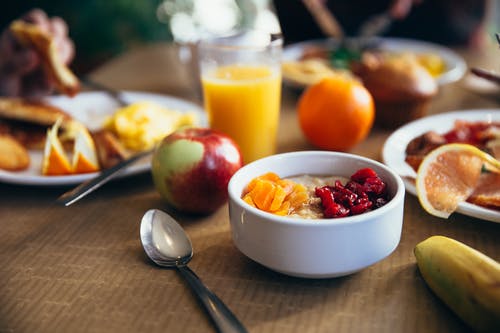
An Ayurvedic proverb says that you should have breakfast like a prince; lunch like a king and dinner like a beggar.
This proverb highlights that breakfast should not be the largest meal of the day, however, it should be able to sustain you till lunch-time.
Problems With a Heavy Breakfast in Ayurveda Diet
If you have a very heavy breakfast, you might not be hungry enough for the lunch. In this way, you might miss out on the great window of the highest metabolism.
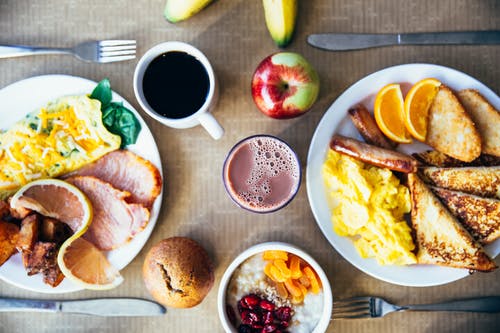
Nutrition in Ayurveda :
If you have a very heavy breakfast, you might not be hungry enough for the lunch. In this way, you might miss out on the great window of the highest metabolism.
If you have a very heavy breakfast, you might not be hungry enough for the lunch. In this way, you might miss out on the great window of the highest metabolism.
If you have a very heavy breakfast, you might not be hungry enough for the lunch. In this way, you might miss out on the great window of the highest metabolism.
Dos and Don’ts for Breakfast in Ayurvedic Eating Principles
Avoid heavy breakfast (unless you are a growing child, sick, weak, or underweight)
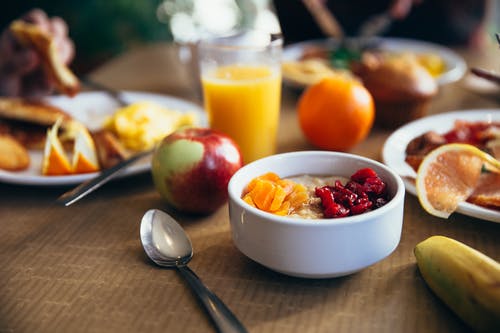
Principles of Ayurveda :
Have fruits, milk (almond/coconut milk for vegans according to their body type), and light snacks for breakfast. Fresh seasonal fruits are the best option.
If you have cough, cold, or mucus issues after consuming fruits in the morning, IT IS NOT NORMAL. Please visit your nearest Ayurveda physician for treatment.
3. Lunch – Best Time for the Biggest Meal
According to Ayurveda, the best time to have a heavy meal is 11-2 pm. This time is called madhyanh (noon time). Sun directly affects our digestive system. Our metabolism accelerates within the sunrise and goes down with the sunset.
At noontime, the sun induces the highest rate of metabolism in our bodies. And therefore it is the best time to digest and absorb a meal.
Benefits of Heavy Meal in Lunch
The body can digest and absorb the maximum amount of nutrition from lunch.
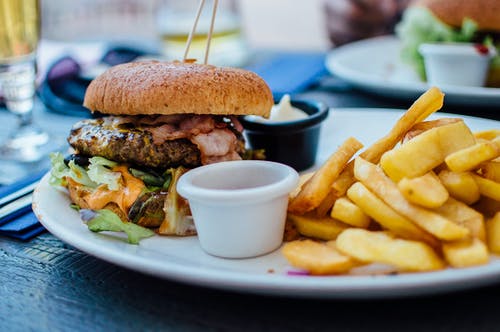
Ayurveda Basic :
Even if you have a heavy meal during lunchtime, you will be able to digest it due to the high rate of metabolism in the body. Imagine it to be like a volcano that can melt even metals.
Food in Lunch almost never creates toxins in a healthy individual, as the food is properly digested.
Digestive issues like bloating, burping, constipation, etc. can be easily avoided if there is no other heavy meal than lunch.
Dos and Don’ts for Lunch in Ayurvedic Eating Principles
If you consume “hard to digest” food substances like meat, cheese, bread, oily food, etc., prefer to eat them during lunchtime only.
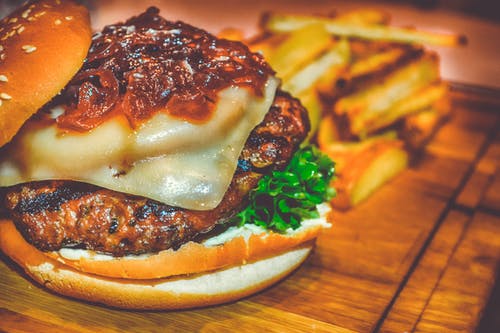
Avoid skipping lunch when hungry. Ayurveda says that an underfed digestive fire can burn the body tissues and create vatta and pitta imbalance.
4. Dinner – The Lightest Meal of the Day
As mentioned earlier, dinner should be the lightest meal of the day. Many scientific studies prove that the children who eat candies in the evening find it hard to go to sleep. It happens because the sugar surge in the body stimulates the entire system and creates undesired hyperactivity.
Our metabolism almost shuts down at night time and the body prepares for sleep. So, make sure that you eat dinner like a beggar!
Benefits of Light Meal in Dinner in ayurvedic principles of eating
Ayurveda says a light meal during dinner gets easily digested and properly absorbed in the body.
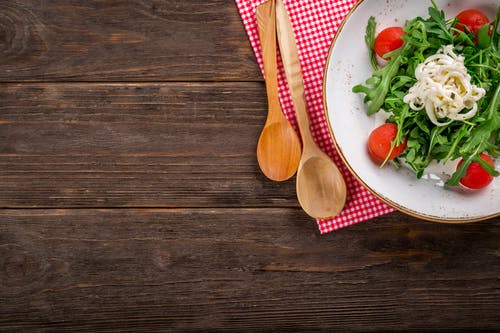
There are lesser chances of toxins formation with a light dinner.
There are lesser opportunities for microbes to thrive on undigested and rotting food.
A light dinner prevents heaviness, indigestion, bloating, and related digestive issues.
A light meal ensures a better quality of sleep.
With a light meal, the body can focus on the repair and rejuvenation process during the night time. Therefore, if you are serious about your beauty sleep, go for a very light dinner.
Dos and Don’ts for Dinner for the best nutrition in Ayurveda
Try to have milk (diary A2 milk; almond/coconut oil for vegans), boiled/roasted vegetables, rice, barley, millets in the dinner. Avoid raw vegetables (salads) at dinner if you have weak digestion. According to Ayurveda, raw vegetables can aggravate vata imbalance.
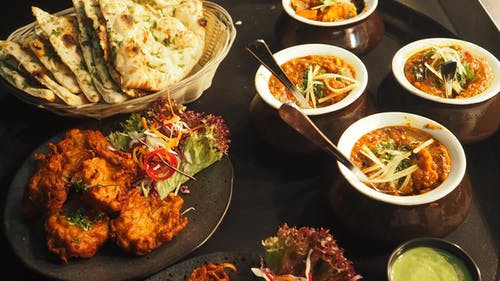
ayurvedic nutrition :
Avoid meat, poultry, fish, oily and spicy food at night.
Avoid curd/yogurt at night. It might aggravate cough, cold or other mucus related problems.
Avoid radish after sunset.
Even if the food is light and easy to digest, try to eat a proper amount. Avoid over-eating, as it will have the same effect as a heavy meal.
Avoid sleeping immediately after dinner.
Walk for 100 steps immediately after dinner. This process is called shatpavali (walking 100 steps). It helps to boost the overall metabolism and helps to accelerate digestion.
Here I have covered a few important Ayurveda basic rules for Ayurvedic eating principles. There are many more such rules for nutrition in Ayurveda. However, it is important to note that we all are unique individuals. Therefore, the most flawless rule is to be receptive to our bodies and recognize what fits best for us.
